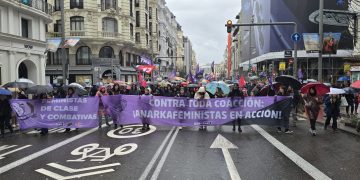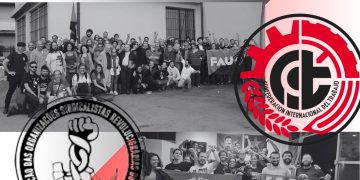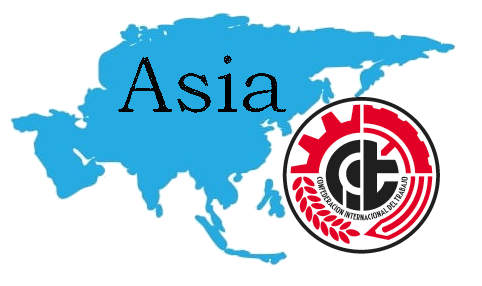International Working Women’s Day emerged in the context of the organisation of working women for better labour conditions, against hunger and against the war of the late 19th century in Europe and in the United States. March 8 was chosen in memory of the 125 women workers who were burned to death in a factory in New York in 1911, due to their terrible working conditions. It was also the date of large workers’ demonstrations in Russia that culminated in a general strike, which in turn was the starting point of the 1917 Socialist Revolution.
In Brazil and Latin America, the labour movement in urban centres and of peasants in rural areas already formed women’s organizations that struggled for rights, land, racial equality and political participation. A landmark of this struggle was the great strike of the textile industry in São Paulo in 1917, in which about 400 workers, mostly women, stopped work.
There have been attempts to turn the day into a commercial celebration. But the struggle of women around the world against femicide, wage inequality, exploitation, sexual harassment, the transformation of women’s bodies into commodities and low political participation has used the date as a milestone to celebrate life and to continue the workers’ struggle.
Working women continue to be exploited in two ways: inside and outside the house. Overburdened with domestic tasks, we have to put up with lower wages despite two and three times as many working hours. In fact, capitalism developed on unpaid domestic work and the exclusion of women from political decisions that affect our lives. We live in a society in which patriarchy, sexism, racism and the class issues that foster economic inequality are intertwined. Black, indigenous, rural, immigrant, subcontracted and LGBT+ women in particular face challenges such as unemployment, boss tyranny and police brutality. Despite advances in the struggle by different feminist movements, we are living through a time of backwardness, especially in Brazil, where conservative, liberal and fascist governments are trying to deny our rights and prevent us from advancing towards autonomy, freedom and women’s empowerment.
In this situation, March 8 reminds us of the struggles of those who preceded us and gives us inspiration thanks to the experiences of territorial self-defence, work and liberation of the female bodies of the Zapatista, Kurdish, Black, indigenous, LGBT+, and Free Women’s movements, among many others. In this March 8, we evoke the strength and the struggle of the comrades that fight together with us daily, in our homes / territories, in our families, in our schools / universities and in our workplaces.
“For us, for those who will come, for those who are no longer”.
Federação das Organizações Sindicalistas Revolucionárias do Brasil · FOB
Also available in:
 Español (Spanish)
Español (Spanish)







![[CNT] Working women are overwhelmed. And we are fed up](https://www.iclcit.org/wp-content/uploads/cnt-8-M-360x180.jpg)
![[Poland] Not a single step back! We keep on fighting!](https://www.iclcit.org/wp-content/uploads/8mip-360x180.jpg)

![[Argentina] About CORONAVIRUS and the Working Class](https://www.iclcit.org/wp-content/uploads/coronavirus_fora-75x75.jpg)


